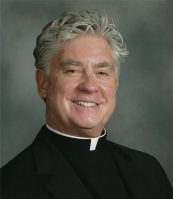Recently I met a man who had, decades ago, received a college bachelor’s degree in literature and a woman who earned a master’s degree in fiction studies. If I understood them correctly, the curricula were not so much about creative writing and composition as they were about simply discovering and enjoying good literary works. To me, that sounds fantastic—a dream retirement degree, but not at all practical when preparing for the work world. Though I knew people who got higher education degrees in arts and letters, I never knew what it meant. There is not much pragmatic value in such disciplines but, ironically, they take us to spheres that are perhaps far more valuable and which can be applied to any vocation.
When Covid-19’s coronavirus descended upon us last spring and I got to escape numerous time-consuming meetings, I exchanged some of that time to read (or reread) great books that were in our classical school library, from the local public library, or from my own little collection. I was proud of myself for reading about twenty-five classics in six months. Mortimer Adler once instructed: “In the case of good books, the point is not to see how many of them you can get through, but how many can get through to you.” Among my all-time favorites are Fydor Dostoyevsky’s Brothers Karamazov, J. D. Salinger’s The Catcher in the Rye, Leon Uris’ Trinity, and Ayn Rand’s The Fountainhead. They got through to me even though my comprehension is sometimes low, and my mind often wanders. Also getting through are my favorite authors of Catholic fiction: Graham Greene and Flannery O’Connor. Last spring and summer, I went on some new ventures where so many others have traveled, escaping with Jack London to the Canadian wild, to the high seas with Herman Melville, on various journeys with Mark Twain; I was very absorbed this past year with James Cooper’s The Last of the Mohicans, Alexandre Dumas’ The Three Musketeers, and Charles Dickens’ Great Expectations. In line with David Copperfield, Oliver Twist, and Nicholas Nickleby, I could readily relate to Pip’s search for purpose and meaning in his odyssey from boyhood to manhood.
C. S. Lewis’ statement, “We read to know that we’re not alone,” is enlivened in stories by great writers who allow us to identify with characters they create and revisit places of the heart that house joy, sorrow, suffering, gratitude, and a host of deep emotions. There are lots of places I have not visited yet; I have never read Leo Tolstoy or fiction by James Joyce, both considered by experts to be the greatest of writers offering the best of works—maybe this year or maybe not till retirement.
As religious fiction goes, I have recommended several friends and retreatants to read Catholic fiction from Alessandro Manzoni’s The Betrothed to Jennifer Haight’s Faith, from George Bernanos’ Diary of a Country Priest to Henryk Sienkiewicz’s Quo Vadis, from Evelyn Waugh’s Brideshead Revisited to Shusako Endo’s Silence. They enlighten us to various aspects of our religious faith, and they inspire us to pursue Christ in even more profound interior realms. Sometimes reading stories like these takes us to God more quickly and more deeply than does prayer. In essence, literature can usher us into divine domains.
In the dead of winter, during Covid’s lockdown, and after a disappointing Super Bowl loss, we might want to turn to literature as a healthy, wholesome, escape from temporary depression, deprivation, or single-digit chill. In this, we know that we are not alone, and we realize that God’s grace is revealed to us in magnificent ways that speak to our imagination and call to our hearts.

Father Don – I normally don’t make comments but… My favorite read of 2020 was “Bourbon Empire,” by Reid Mitenbuler. I was led to it by a different author writing about the maker of the legendary Pappy VanWinkle bourbon who said in his book: “nothing comes as close to the death of truth in America as the word ‘brand’.” Mitenbuler’s work illustrated all the (well-intentioned) lies told to market bourbons in America. No theology or deep thoughts, just a very fun read. – Pat Crawford
Sent from my iPhone
>
LikeLike
Wonderful suggestion… happy reading!
LikeLike
Hi and thank you for this edition. Many years ago Frances asked fr.Dan Schneider to be her S piritual director. He agreed and they started with the brothers karamazov which carried them for many interesting years.I’m ordering diary of a country priest book and movie. My father would say”if you like to read you’ll never be alone.” I miss him and Arthur Tighe and so many of our greats.love to you
John S. Gordon
Law Offices
GORDON & GORDON, P.C.
~Established 1881~
P.O. Box 22648
Kansas City, MO 64113
Cell: 816-213-0125
Office: 816-931-9995
Fax: 816-931-9985
John@gordonandgordonlaw.com
LikeLike